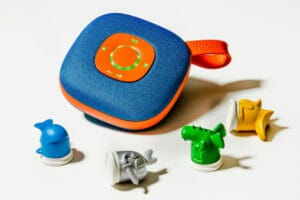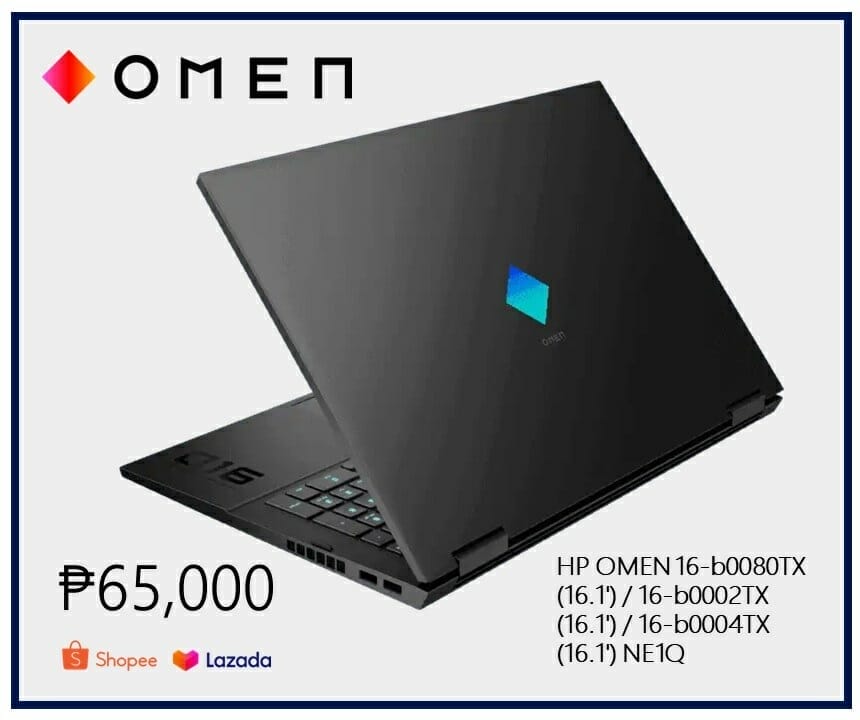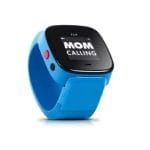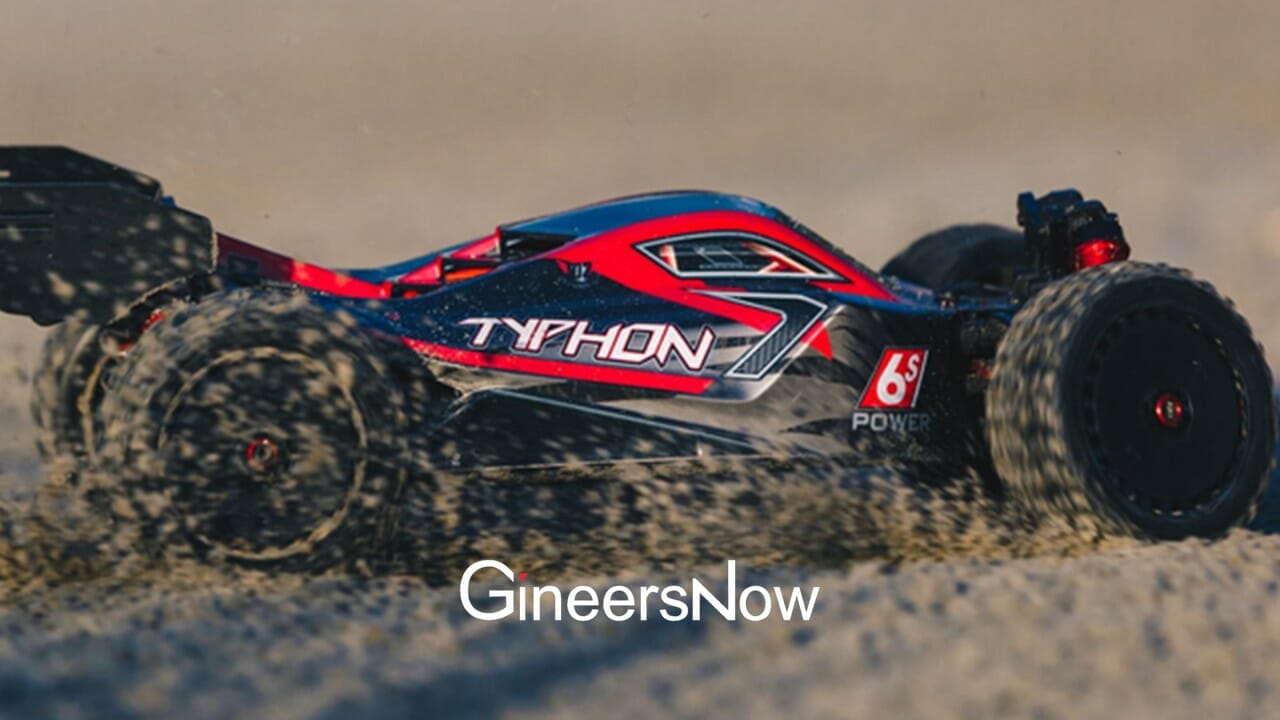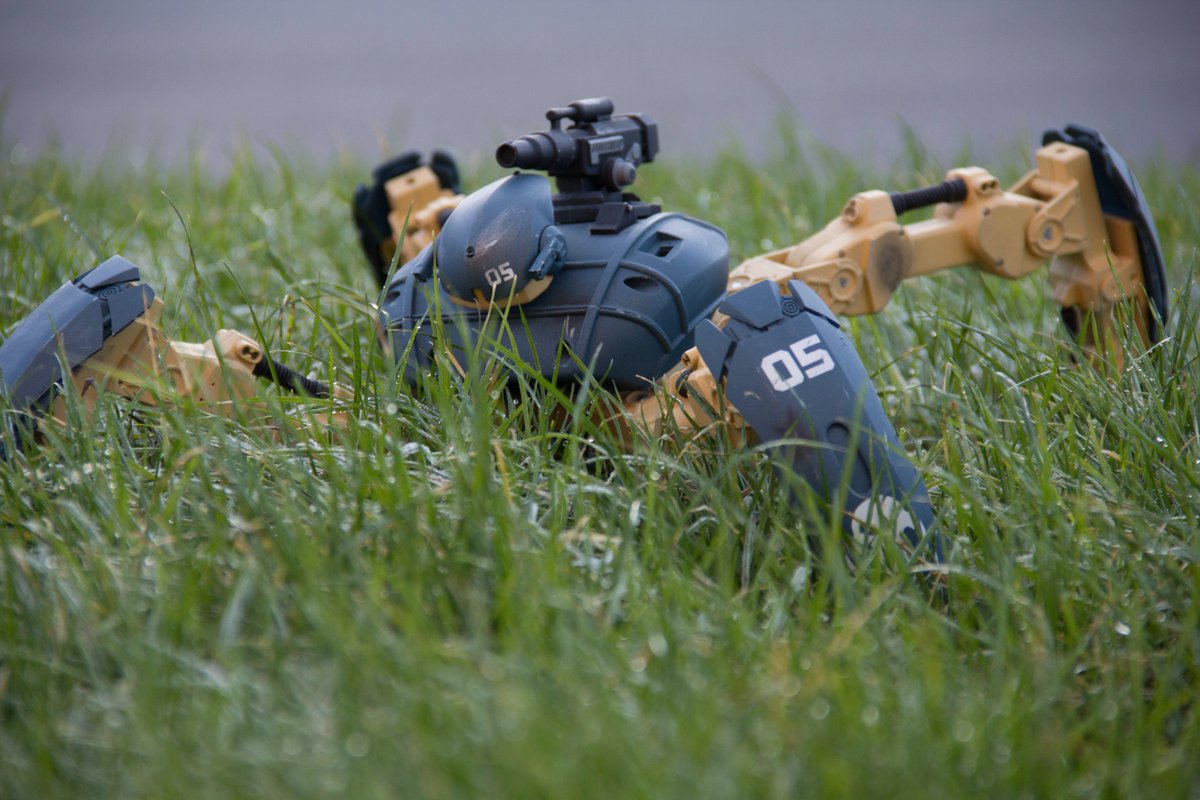When we were young, we explored the beauty of listening to music using the CDs we played on the disc players we had. There were no smartphones back then to easily store a playlist and have easy access to whatever songs we love through the internet. The simple pleasure of listening to music on the radio was enough to keep us entertained the whole day.
Though times are different now, the important family bonding of sharing the magic of music to each and everyone in the family is still important. This is why Théodore Marescaux designed a fun music player that everybody can use wherever they go, whenever they want – yep, even the youngest member can use it. Jooki is a fun figurine-based music player that uses figurines instead of a screen to let its users choose what music they want to hear from its high-quality speakers. It’s kid-proof so parents no longer have to worry about playing the wrong songs or stories. It’s definitely a fun jukebox designed for the youngest members of the family.
In this exclusive interview with Théodore Marescaux, one of the co-founders of MuuseLabs, the company in-charge of Jooki, he shares his story on how he and his team developed Jooki, the challenges they had to go through for their startup company and his advice on how to mix engineering and business.
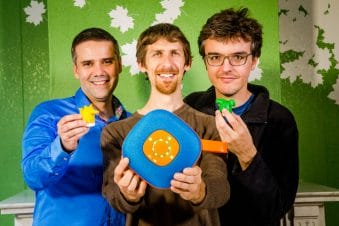
Introduce yourself.
Marescaux: I guess I can be best described as a European; French citizen, born in Romania, living in Belgium. The company is called MuuseLabs, and the product is called Jooki.
How many years have you been working in your industry?
Marescaux: I have started my career as a researcher at IMEC (Leuven, Belgium), Europe’s largest independent nanotechnology centre and did a PhD in parallel at the TU/e (Eindhoven, The Netherlands). Then I did an MBA at Vlerick (BeNeLux’s #1 biz school) to re-orient my engineering career to a more business and strategy one. Then I joined Barco and had an amazing ride as product manager for digital cinema; Barco is the world’s leader in digital cinema projection.
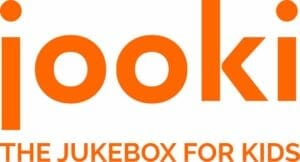
Describe your company
Marescaux: MuuseLabs is a tech startup with three founders. My co-founders Will (Moffat), an ex-Googler, and Pieter (Palmers), former team lead at Huawei, are two amazing engineers. We have Alan Munn as advisor, the former CEO of Tomy in Europe. He has also been a SVP at Hasbro and has over forty years of experience in the toy industry.
Right now, it is just the three of us, based in Brussels, Belgium. We are currently hiring to increase the team. The first talent we are looking for is a digital marketeer, before further increasing the engineering fire-power.
Describe your mission, vision and values.
Marescaux: We believe technology is for everyone, whatever their age and technical qualifications are. But the technology is there to make a product truly magical, so we are striving to hide the technology to focus on the user experience. Our focus is primarily on children, and we believe in imaginative play as a very powerful means to have them excited and having fun experimenting and learning. This is one of the main reasons why we want Jooki to be a screen-less experience. Screens are too cognitively-intensive and kids end-up passively staring at them. We want to use technology to enhance the imaginative play experience.
Where is this company headed? What are your future expansion plans?
Marescaux: MuuseLabs is a family tech company. On a short term, we are preparing to launch Jooki and expand/create a full ecosystem around it over the next few years. Our core is using technology to spark the magic enhancing imaginative play. On a long term, I see MuuseLabs continuing this trend to create a real toys-to-life experience, with deep AI to power holographic and robotic kids companions, who can share their play and learn experience and create bridges within the family to encourage yet more interactions with the parents.
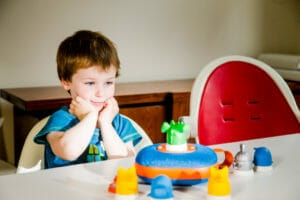
What do you think is the future of the toy/gadget industries?
Marescaux: I see the smart gadget industry taking over a significant portion of the more traditional toy industry in the coming years. The traditional simple toys are here to stay, but I see today’s ‘electronic’ toys being disrupted with a new generation of toys-to-life products.
How will today’s toys and gadgets make a difference as compared to the ones from the past?
Marescaux: The best toys, whether modern or traditional are those who engage the imaginative play in children, those who spark the magic and who can challenge the child. Some of the recent tech toys and gadgets are flashy and create a magical experience, but this may be short lived as they tend to be too directive or limited and fail to trigger that imaginative play.
Many toys are played with only for a short period of time, I believe a new generation of smart gadgets is coming, a new generation that can truly engage as they adapt to the child and its environment.
Which toy/gadget from your childhood made an impact on you while growing up?
Marescaux: Without any doubt that would be Lego, but this was for the more simple bricks that one would want to combine and create own universes. Nowadays this has been shifting away from the imaginative play with very dedicated sets where one has to follow guides step-by-step.
What’s the inspiration behind your products?
Marescaux: Jooki comes from a personal need. When my eldest daughter was three, she asked me to play a song for her (Queen’s – We will rock you :)). We don’t use CDs anymore, so I had to find that song on my mobile phone. Then she wanted me to play over and over again. Since I didn’t want her to have my phone, I realised kids nowadays do not really have any other options to truly listen to music & stories. So I set to create a system where she could experiment with music and stories independently and screen-free. Jooki is much more than a simple jukebox, it is a truly connected object and we are developing it to be a kid’s companion to enhance imaginative play, but this is where it all started.
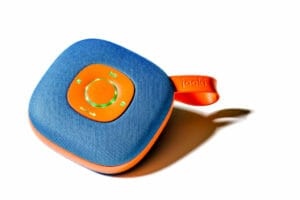
Which group is your target market and why?
Marescaux: We are starting with 3-12 year olds as this is the initial target for Jooki, but we have many ideas for a broader audience. There are so many opportunities to make our lives more enjoyable and magical while fostering imagination and sharing in the family.
What are the future innovations that you and your company are pursuing?
Marescaux: The very first step is to make Jooki available for all. But without revealing too much, we are looking how to augment the experience with content and a whole smart peripherals ecosystem.
Do you think your product has made an impact on your costumers and in your industry?
Marescaux: As we speak, we have been running a Kickstarter campaign and the product is still in its industrialisation process to be delivered in June 2017. The reactions we see from our backers on Kickstarter are really enthusiastic with people telling us that we are filling a true gap in the market. We also have regular basis public demonstrations and tests, it is very rewarding to see both adults and children experiencing Jooki, their reactions of surprise and joy are a real treat. What people like most are the independence and screen-free aspects.
Where do you see your products heading 10 years from now?
Marescaux: I see toys-to-life products where technology is present but hidden to enhance imaginative play. Deep AI companions are certainly one of the elements in transforming the way imaginative play is led.
What makes your toy/gadget/product different from your competitors?
Marescaux: Jooki is unique. It is the only 21st century music player that is kids-appropriate.
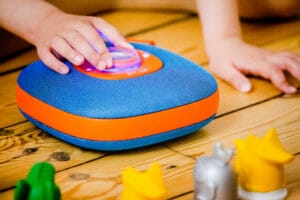
What challenges did your company face while developing your product?
Marescaux: Starting a hardware company is easier than ever before from a technical standpoint, but it is still a challenge as most investors do not yet understand them. In Belgium, the norm for tech startups is to be a B2B software startup. As a B2C hardware company we are a real UFO. This made it tougher to start and convince people, but it is now turning to our advantage – as we are unique.
Another challenge was to address the market, the toy industry is still quite traditional and the more advanced consumer electronics / gadgets do not yet fit well in that box. We ended up planning distribution in the consumer electronics industry, and that was fine. As a startup you need to find a fine balance between attempting radical disruption and moulding yourself to the existing industry. You are likely too small to disrupt a big industry on your own, and you can’t either 100% play by its rules because you don’t have a competitive advantage.
Finally, striking the right balance between functionality and product cost is not only difficult, but also critical to business success.
How did your company overcome these challenges?
Marescaux: The answer is not engineering, but MARKETING… By creating the visual support for our product (the industrial design and prototypes) together with the story we could convince people to follow us and help us out. The Kickstarter campaign has been a fantastic tool to get engagement and build credibility.
Finding the right distribution channel for our product has also been key. Different channels can have very different cost structures and business implications.

ADVICE TO THE YOUNG ENGINEERS
Marescaux: First of all, go for it! Building products and sharing them with the world is a lot of fun and it is very rewarding to see your creations on the shelves in shops. As an engineer, you have an advantage in that you understand technology and can imagine how to build creative products. The maker movement is also making this easier than ever. At the same time, be aware of some of the biases that engineers tend to have and focus on those first before jumping to hack a product together.
Who are you making this product for? What unique benefit is it bringing to them? What else could they use instead and why is your offering significantly better? Why will they want to buy it from you? How will they know about it? How many people will want to buy? How many will you sell?
If you are planning a hardware product, be aware that there are many knowledgeable manufacturers in the world. They will greatly help you create and industrialise your products. They will not help you “invent” your product: you will have to specify what it does (and to some extent how it does it, as well as how it looks (the industrial design), but they will definitely help you in creating prototypes including as much of the electronics, software and mechanical design as you want. You probably want them to do the DFM (design for manufacturing) part. They have experience and often access to components you do not even know about. Do not hesitate to reach out to manufacturers early on.
Last but not the least, you are not on your own. There are several hardware startup hubs and accelerators that can help. Check out the HardwareClub, Bolt, HAX and others they even have freely accessible resources on the web!
